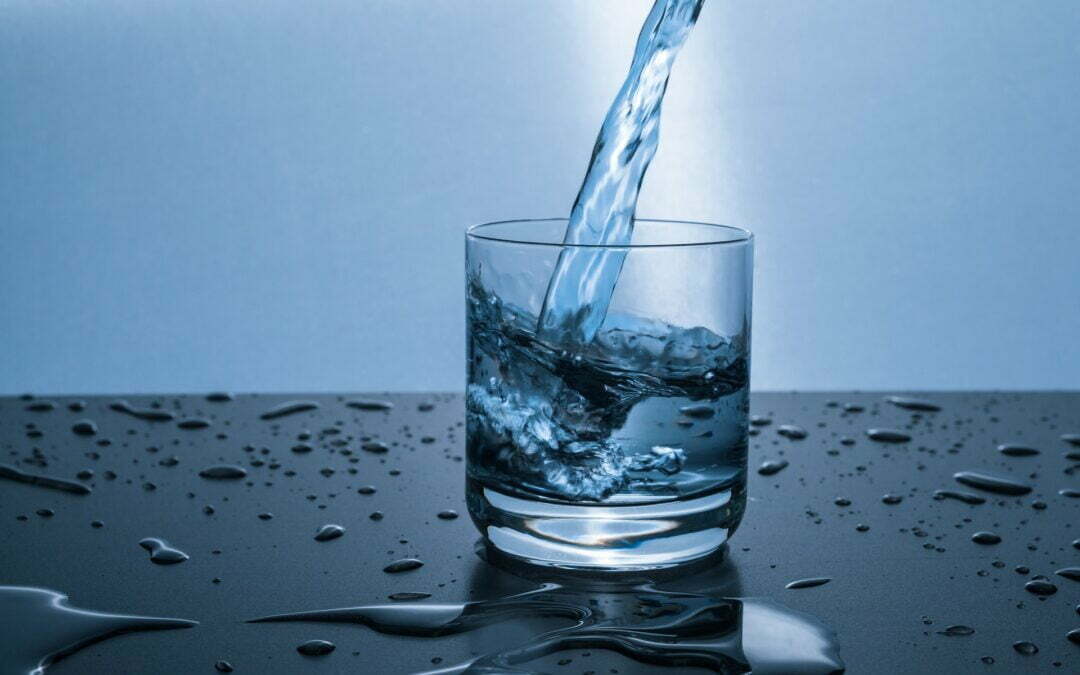“You’re not sick; you’re thirsty. Don’t treat thirst with medication.” –Dr. F. Batmanghelidj
The most important nutrient for the human body is water. An average person can live for about forty days without food but only three to five days without water. Approximately two-thirds of a person’s body weight is water–our blood is 82 percent water and both our brain and muscles, are 75 percent water. The major ingredient of all fluids in the body is water, including saliva, gastric juice, bile, pancreatic juices, and intestinal secretions. Water is necessary for practically every bodily function. It helps carry essential nutrients to all our cells, aids in circulation and digestion, and helps carry away the metabolic waste products (the “garbage”)
The average-sized person requires 2 to 3 quarts of water a day (that’s 64 to 96 ounces). A good rule to go by is to take your body weight, divide it by two, and that’s the number of ounces of water you should be drinking daily. If you are eating adequate amounts of fresh fruits and vegetables daily, then you’re getting about one quart of water already. But stay away from drinks with caffeine, such as coffee, tea, and sodas. Caffeine is a diuretic and actually causes you to lose water, so it does more harm than good.
Patients who drink adequate amounts of water can expect improvements in blood pressure, as well as a reduction in headaches, arthritis, and general spinal pain. In general, patients with chronic illnesses have fewer symptoms and better overall health as they increase their water intake.
What’s the best time to drink water? I believe at different intervals throughout the day. Here’s a good guideline: drink at least one 8-ounce glass of water about thirty minutes before each meal and then another 8-ounce glass about two and a half hours after each meal. Before your largest meal of the day, drink another 8 ounces of water. By drinking water before meals, you will decrease your appetite and greatly help your digestion.
Ground water supply and streams are sometimes contaminated with pesticides, insecticides, and other chemicals, so you should certainly filter your water. There are three basic types of filters you can purchase. Carbon filters are the most common and least expensive. Life of a filter varies from three to one year depending on quality and type. You must change the filter regularly in order to avoid contamination (more harm then good).
Another type of water filter is a water distiller. I recommend you get the kind that performs double distillation and has a carbon filter on top. This will ensure that volatile chemicals and the majority of pesticides are removed.
The third type of filter is a reverse osmosis system with a carbon filter. I believe this is one of the best water filters on the market. It removes bacteria, parasites, chemicals, heavy metals, chlorine, fluoride, uranium, radium, strontium 90, and most pesticides. And having the carbon filter with the reverse osmosis filter will make sure that nitrates and trihalomethanes are also removed from your water.
What about bottled water? Did you know the standard for bottled water is that it only has to be as safe as tap water? It’s fine for convenience occasionally, but not cost-effective nor better than another.
Better hydration may be associated with a number of benefits, including increased energy, a stronger constitution, and overall improved health. So drink plenty of pure water–it’s one of vital needs of your good health!
More information available @ www.watercure.com

